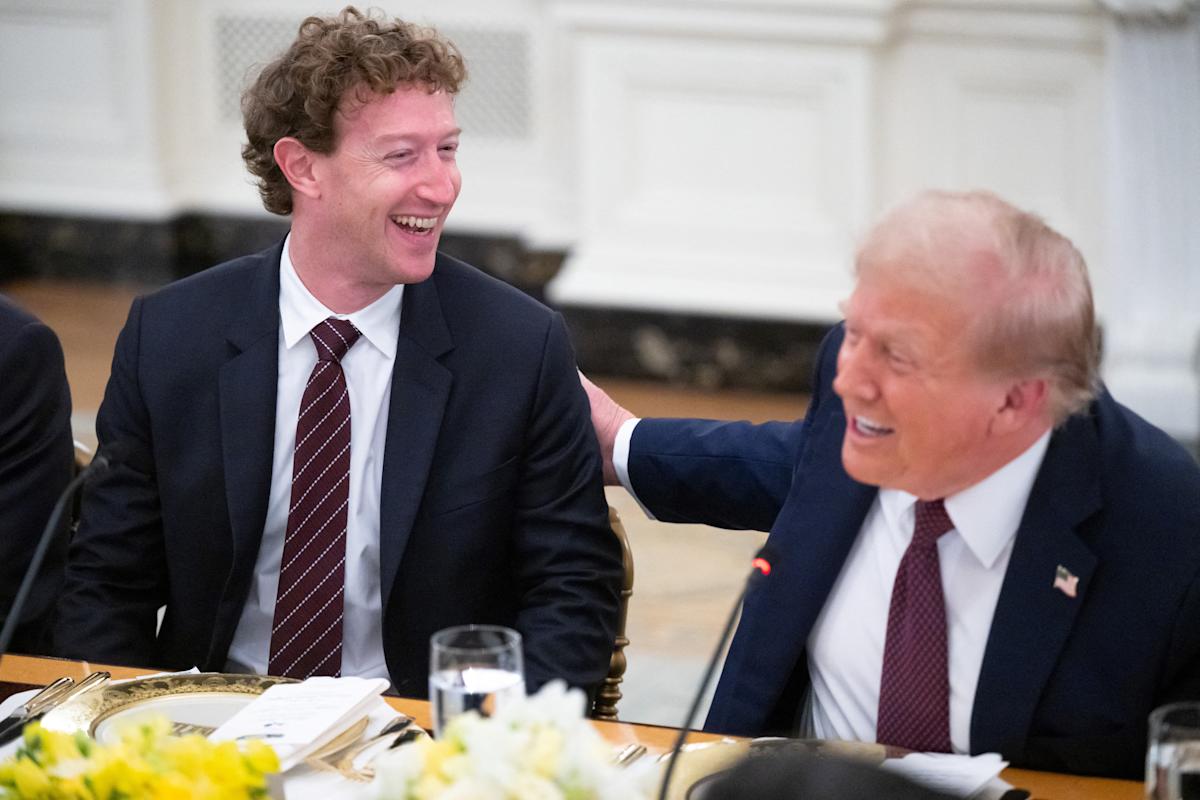Zuckerberg Discusses $600 Billion AI Investment with President Trump

Key Points
- Meta CEO Mark Zuckerberg told President Donald Trump that the company will spend at least $600 billion on AI infrastructure in the U.S.
- Trump responded positively, acknowledging the large figure and expressing approval.
- A hot‑mic recording captured Zuckerberg apologizing for not knowing the exact number Trump wanted.
- The exchange reflects a markedly warmer relationship compared with a year earlier, when Trump threatened legal action against Zuckerberg.
- The $600 billion pledge signals Meta’s strategic focus on expanding AI capabilities domestically.
- Analysts view the conversation as part of a broader trend of tech leaders seeking closer ties with government officials.
- Public reaction highlights the contrast between past tensions and the current collaborative tone.
Meta CEO Mark Zuckerberg told President Donald Trump that the company plans to spend at least $600 billion on artificial‑intelligence infrastructure in the United States over the next several years. Trump responded positively, and a later hot‑mic moment captured Zuckerberg apologizing for not being sure of the exact figure. The exchange highlights a markedly warmer relationship between the two leaders compared with a year earlier, when Trump threatened legal action against Zuckerberg and Meta faced intense scrutiny.
Background
Relations between Meta and the Trump administration have shifted dramatically over the past year. Earlier, the former president had threatened the Facebook founder with imprisonment and Meta was under intense public and regulatory pressure. Since then, Zuckerberg has taken steps that include a $1 million donation to Trump’s inauguration, policy adjustments, and private meetings that appear to have softened the once‑tense dynamic.
During a recent White House dinner, a gathering of roughly three dozen technology CEOs, Zuckerberg and Trump sat side‑by‑side. The event provided a platform for executives to publicly thank the president, and Zuckerberg’s remarks quickly became a focal point of the evening.
The Conversation on AI Spending
At one point, President Trump asked Zuckerberg how much Meta would invest in artificial‑intelligence infrastructure in the United States over the coming years. Zuckerberg responded, “Probably going to be something like, I don’t know, at least $600 billion through 2028 in the US.” Trump reacted with approval, saying, “That’s a lot, thank you Mark, it’s great to have you.”
A separate, hot‑mic recording later captured Zuckerberg turning to Trump and apologizing, “Sorry, I wasn’t ready … I wasn’t sure what number you wanted to go with.” The clip quickly spread on social media, underscoring both the magnitude of the proposed investment and the informal tone of the exchange.
Implications and Context
The disclosed figure represents a substantial commitment by Meta to expand AI capabilities domestically. While the exact breakdown of the $600 billion is not detailed, the statement signals a strategic focus on AI research, development, and infrastructure within the United States.
Trump’s positive response suggests alignment with his administration’s broader goal of fostering American leadership in emerging technologies. For Zuckerberg, the acknowledgment serves as a public affirmation of Meta’s investment priorities and may bolster the company’s standing with policymakers.
Analysts note that the exchange reflects a broader trend of technology leaders seeking closer ties with the government to navigate regulatory landscapes and secure support for large‑scale projects. The conversation also illustrates how corporate pledges can become a point of political capital for both CEOs and elected officials.
Public Reaction
The moment quickly circulated online, prompting commentary about the evolving relationship between Meta and the Trump administration. Observers highlighted the contrast between this cordial interaction and the earlier threats of legal action, interpreting the shift as a sign of mutual accommodation.
Critics, however, raised concerns about the scale of the investment and the potential for it to influence policy decisions, emphasizing the need for transparency regarding how such funds will be allocated.
Overall, the dialogue underscores a notable pivot in the dynamic between one of the world’s largest tech firms and the former president, marking a new chapter in their public and private engagements.